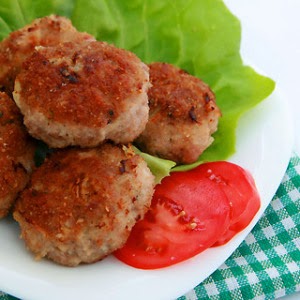- The
name of “your” family’s country of origin
The country of origin is Albania. Albanians are a
native Balkan people who live in Southern Europe. They call themselves
Shqiptare. Albanians live in ethnically compact settlements in large areas,
primarily in Albania, Kosovo and Macedonia, but also in Montenegro and Greece.
Albanian culture is unique and diverse. There are two cultural groups in
Albanian territories: the Ghegs and Tosks. Ghegs live in the north part while
Tosks live in the south part. Although there are some differences between the
two cultural groups, they keep a strong national identity and ethnic culture. I
chose Albania because we have several staff members who are employed at my
center and at the beginning they speak limited English. When it comes to
working with children they are very nurturing and caring. They treat them like
they are their very own.
- At least five ways in which you will prepare yourself to be culturally responsive towards this family
1. In
order to make a child from Albania feel welcomed we make a point of researching
the culture so that we can incorporate their culture and beliefs and food into
the program. For example, one of the largest holidays we celebrate is the pagan
Summer Festival. It is celebrated on March 14 and it is intended to commemorate
the end of winter, the rebirth of nature and a rejuvenation of spirit amongst
the Albanians.
2. Provide interpreters in the school setting to
facilitate communication between parents of immigrant origin and their child's school.
3. Games
that Albanians like is another way of being culturally responsive. We play hide
and seek with the children. This is one of Albanian’s most popular children’s
game. All Albanian children play this game at least every second day. Game
rules are very simple. Children gather around a landmark, such a tree or a
wall. One of them will be chosen to close eyes and count while others players
hide. He or she will be called it When finishing counting it will call out
“Ready or not here I come” and will go to search and look for other players.
While it is searching, other children try to run to home base; therefore it should be very careful. It will try to find and touch the hidden and running
players before they reach the home base. The first player to be touched will
be it in the next round.
4. We greet the parents with a hug and a kiss.
5. We also learn how to say hi, good morning, good evening, how are you doing, good bye, have a good day and other phrases in their home language. We greet them with a smile, have a happy
face in an appropriate situation, shake hands firmly and thank them for meeting
and discussing things with us.
6. We
add traditional foods from Albania to our menus.
- A
brief statement describing in what ways you hope that these preparations
will benefit both you and the family
We are culturally responsive to all cultures in our
center. With that being said when you implement practices to make families from
different cultures feel welcome they really appreciate it. You make them feel
like they are family and they feel like they truly belong. Just this week we
had an Asian child start who did not speak English. We asked dad to give us a
list of words that we could learn in their language so that we could
communicate with her in her native language. I wish you could have seen the
smile on his face and he just kept saying thank you and shaking my hand. So
doing some of these things in my opinion will most certainly benefit us and the
families.
Albania Food

No comments:
Post a Comment